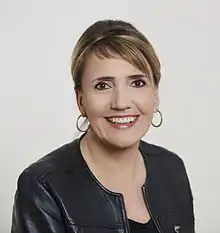| ||||||||||||||||||||||||||||||||||||||||||||||||||||||||||||||||||||
All 51 seats of the Landtag of the Saarland 26 seats needed for a majority | ||||||||||||||||||||||||||||||||||||||||||||||||||||||||||||||||||||
|---|---|---|---|---|---|---|---|---|---|---|---|---|---|---|---|---|---|---|---|---|---|---|---|---|---|---|---|---|---|---|---|---|---|---|---|---|---|---|---|---|---|---|---|---|---|---|---|---|---|---|---|---|---|---|---|---|---|---|---|---|---|---|---|---|---|---|---|---|
| Turnout | 481,294 (61.6%) | |||||||||||||||||||||||||||||||||||||||||||||||||||||||||||||||||||
| ||||||||||||||||||||||||||||||||||||||||||||||||||||||||||||||||||||
 | ||||||||||||||||||||||||||||||||||||||||||||||||||||||||||||||||||||
| ||||||||||||||||||||||||||||||||||||||||||||||||||||||||||||||||||||
The 2012 Saarland state election was held in on 25 March 2012 to elect the members of the Landtag of Saarland. The election was triggered by the collapse of the previous coalition government comprising the Christian Democratic Union (CDU) led by Minister-President Annegret Kramp-Karrenbauer, Free Democratic Party (FDP), and The Greens. The CDU subsequently formed a grand coalition with the Social Democratic Party (SPD), and Kramp-Karrenbauer was re-elected as Minister-President.[1][2]
Background
After the 2009 state election, a Jamaica coalition (CDU–FDP–Green) government took office, the first of its kind in Germany. The government collapsed on 6 January 2012 due to internal issues in the FDP.[3] Minister-President Kramp-Karrenbauer stated that "[a] credible and reliable cooperation is no longer completely possible in this coalition."[3] The CDU held discussions with the Social Democratic Party in an attempt to form a grand coalition, but this failed, causing early elections to be called.[4]
Parties
The table below lists parties represented in the previous Landtag of Saarland.
| Name | Ideology | Leader(s) | 2009 result | |||
|---|---|---|---|---|---|---|
| Votes (%) | Seats | |||||
| CDU | Christian Democratic Union of Germany Christlich Demokratische Union Deutschlands |
Christian democracy | Annegret Kramp-Karrenbauer | 34.5% | 19 / 51 | |
| SPD | Social Democratic Party of Germany Sozialdemokratische Partei Deutschlands |
Social democracy | Heiko Maas | 24.5% | 13 / 51 | |
| Linke | The Left Die Linke |
Democratic socialism | Oskar Lafontaine | 21.3% | 11 / 51 | |
| FDP | Free Democratic Party Freie Demokratische Partei |
Classical liberalism | Oliver Luksic | 9.2% | 5 / 51 | |
| Grüne | Alliance 90/The Greens Bündnis 90/Die Grünen |
Green politics | Simone Peter | 5.9% | 3 / 51 | |
Opinion polling
| Polling firm | Fieldwork date | Sample size |
CDU | SPD | Linke | FDP | Grüne | Piraten | Others | Lead |
|---|---|---|---|---|---|---|---|---|---|---|
| 2012 state election | 25 Mar 2012 | – | 35.2 | 30.6 | 16.1 | 1.2 | 5.0 | 7.4 | 4.5 | 4.6 |
| Forschungsgruppe Wahlen | 13–15 Mar 2012 | 1,053 | 34 | 34 | 15 | 2 | 5 | 6 | 4 | Tie |
| Infratest dimap | 13–15 Mar 2012 | 1,000 | 33 | 33 | 16 | 3 | 5 | 6 | 4 | Tie |
| Forsa | 20–29 Feb 2012 | 1,002 | 35 | 37 | 14 | 1 | 4 | 5 | 4 | 2 |
| Infratest dimap | 21–22 Feb 2012 | 1,001 | 35 | 36 | 15 | 2 | 4 | 5 | 3 | 1 |
| Emnid | 24–25 Jan 2012 | 1,000 | 36 | 36 | 15 | 2 | 5 | 4 | 2 | Tie |
| Forschungsgruppe Wahlen | 23–25 Jan 2012 | 1,039 | 34 | 38 | 13 | 2 | 6 | 5 | 2 | 4 |
| Infratest dimap | 11–15 Nov 2011 | 1,000 | 32 | 35 | 12 | 5 | 8 | 4 | 4 | 3 |
| Infratest dimap | 1–3 Nov 2010 | 1,001 | 32 | 34 | 17 | 4 | 9 | – | 4 | 2 |
| Infratest dimap | 10–13 Dec 2009 | 1,000 | 32 | 29 | 19 | 9 | 7 | – | 4 | 3 |
| 2009 state election | 30 Aug 2009 | – | 34.5 | 24.5 | 21.3 | 9.2 | 5.9 | – | 4.6 | 10.0 |
Election result
 | |||||||
| Party | Votes | % | +/- | Seats | +/- | Seats % | |
|---|---|---|---|---|---|---|---|
| Christian Democratic Union (CDU) | 169,617 | 35.2 | 19 | 37.3 | |||
| Social Democratic Party (SPD) | 147,170 | 30.6 | 17 | 33.3 | |||
| The Left (Linke) | 77,612 | 16.1 | 9 | 17.6 | |||
| Pirate Party (Piraten) | 35,656 | 7.4 | 4 | 7.8 | |||
| Alliance 90/The Greens (Grüne) | 24,252 | 5.0 | 2 | 3.9 | |||
| Family Party of Germany (FAMILIE) | 8,394 | 1.7 | 0 | ±0 | 0 | ||
| Free Democratic Party (FDP) | 5,871 | 1.2 | 0 | 0 | |||
| National Democratic Party (NPD) | 5,606 | 1.2 | 0 | ±0 | 0 | ||
| Others | 7,116 | 1.5 | 0 | ±0 | 0 | ||
| Total | 481,294 | 100.0 | 51 | ±0 | |||
| Voter turnout | 61.6 | ||||||
Outcome
Having been reelected as the largest party in the Landtag, CDU was tasked with forming the government. Minister-President Annegret Kramp-Karrenbauer said that she was seeking to form a grand coalition with the SPD, which have 37 seats altogether. Both parties reached a coalition agreement on 24 April 2012. The CDU and SPD would control 3 ministries each. Kramp-Karrenbauer will also head the new government which will be sworn on 9 May 2012.[5]
On 9 May 2012 Kramp-Karrenbauer's new government gained the vote of confidence with 37 votes. There was 12 votes against and 2 abstentions. Her cabinet was later endorsed by the Landtag with the same number of votes.[6]
References
- ↑ "CDU gewinnt Landtagswahl". tagesschau. 25 March 2012. Retrieved 26 March 2012.
- ↑ "Große Koalition im Saarland: Kramp-Karrenbauer als Ministerpräsidentin wiedergewählt". Focus (in German). 9 May 2012. Retrieved 27 July 2012.
- 1 2 Zuvela, Matt (6 January 2012). "One-of-a-kind coalition falls apart in German state". Deutsche Welle. Retrieved 15 March 2012.
- ↑ Chelsom-Pill, Charlotte; Connor, Richard (20 January 2012). "Early Saarland elections planned as coalition talks fail". Deutsche Welle. Retrieved 15 March 2012.
- ↑ "Strategiespiel ums Kabinett". SZ Online. 24 April 2012.
- ↑ "Kramp-Karrenbauer als Ministerpräsidentin wiedergewählt". Süddeutsche. 9 May 2012. Retrieved 11 May 2012.


_in_Hamm_(10571425525).jpg.webp)

